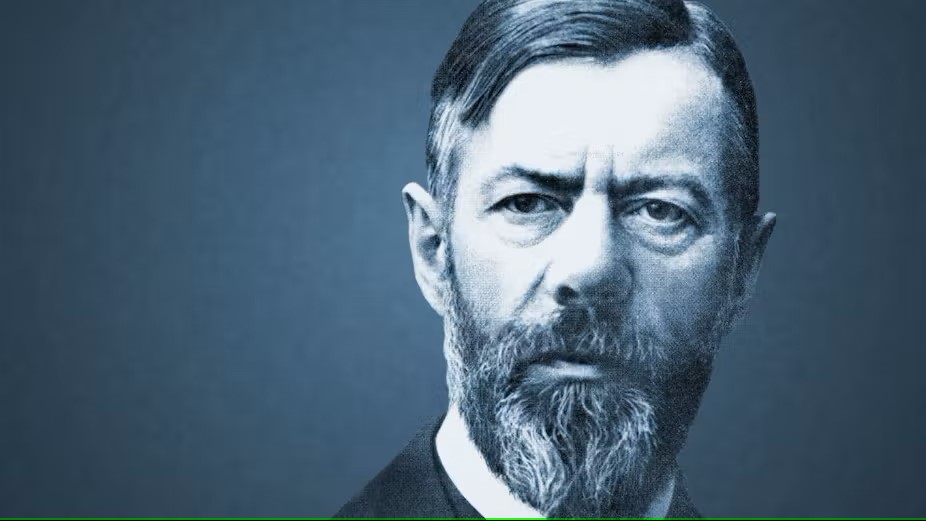According to him, the Protestant ethic is the basis of Western capitalism: Who is Max Weber?
According to Weber, the Protestant ethic, although not the first and fundamental cause of capitalism, played an important role in the birth and development of capitalism because it gave rise to a culture that emphasized the importance of individualism, hard work and discipline, rational behavior, and self-confidence.

German thinker, sociologist, and political economy expert. Max Weber is the name who made sociology a modern science, and the influence of his ideas continues today.
Max Weber was born on April 21, 1864, in Erfurt, Germany, as the eldest child of a family of seven children. His full name is Karl Emil Maximilian Weber. Weber's father, Sir Max Weber, was a liberal politician and his mother, Helene Fallenstein, was a moderate protestant. He first started his university education at Heidelberg University Faculty of Law in 1882. He also studied economics, medieval history, and theology.
Maximilian Karl Emil Weber (21 April 1864 – 14 June 1920) was a German sociologist, historian, jurist, and political economist who was one of the central figures in the development of sociology and the social sciences more generally. His ideas continue to influence social theory and research.
Max Weber and his brother Alfred, an economist, grew up under the influence of their father reflecting his political life to his family. In 1876, when he was 12 years old, he wrote two texts as Christmas gifts for his family. At the age of 14, he wrote texts making references to important thinkers and showed that he tended to specialize in the field of social sciences.
He started working at the University of Berlin in 1884, then served intermittently in the German army in Strasbourg and worked for a short time at the University of Göttingen.
In the following years, he became a trainee lawyer and returned to the University of Berlin, where he received the title of associate professor. He started working as a Professor of Economics at the University of Freiburg in 1894, and two years later he was appointed to the University of Heidelberg. As a result of his sleep problems and nervousness, after his immense productivity in the 1890s, he did not write a single page from 1898 to the end of 1902 and resigned from his position as a professor.
During World War I, he was the director of a military hospital in Heidelberg, and in 1915 and 1916, he served on the commission assigned to maintain German superiority in Belgium and Poland after the war. During the war, Weber's views on the war changed, as did his views on the expansion of the German Empire.
In 1918, he attended the "Workers' and Soldiers' Council" in Heidelberg, and in the same year, he advised the German Armistice Commission, which participated in the Versailles Treaty, and was appointed as a member of the "Weimar Constitution commission." In particular, Article 48, which he ensured was included in this constitution, was later used by "Adolf Hitler" to silence the opponents and establish his dictatorship.
Max Weber's contributions to German politics are still debated. Max Weber resumed teaching, first at the University of Vienna and in 1919 at the University of Munich. He founded Germany's first sociology institute in Munich, but there were not enough personnel for the sociology department. Max Weber did not continue teaching regularly, he only gave private lessons for a while and made his living partly in this way and largely from the inheritance he received in 1907.
Max Weber saw rationalization as the most fundamental and distinctive action in capitalist Western society. The famous thinker, who traced rationalization in every field, argued that Protestant morality led to cultural changes. Accordingly, although the Protestant ethic was not the first and fundamental cause of capitalism, it played an important role in the birth and development of capitalism because it gave birth to a culture that emphasized the importance of individualism, hard work and discipline, rational behavior, and self-confidence.
He opposed economic determinism and emphasized the role of culture, especially religion, in shaping human behavior; He strongly criticized Marxism because it highlighted the subjective orientations of individuals in human relations, and finally, he took a critical stance against the thesis that capitalism would collapse and said that the planned economy in socialist societies strengthened rationalization. He gained fame with his article "The Spirit of Capitalism and the Protestant Ethic" published in 1904, and this work laid the groundwork for the idea of basing later economic systems on culture and religion.
This work is his only work published as a book while he was alive. Also that year, he went to the USA and participated in the World's Fair at the Congress of Arts and Sciences.
Max Weber married his cousin and future feminist writer Marianne Schnitger in 1893. He had a son. After his death, his wife collected his newspaper articles and compiled them into a book.
Max Weber died of pneumonia due to Spanish flu at the age of 56 in Munich, Germany, on June 14, 1920.
